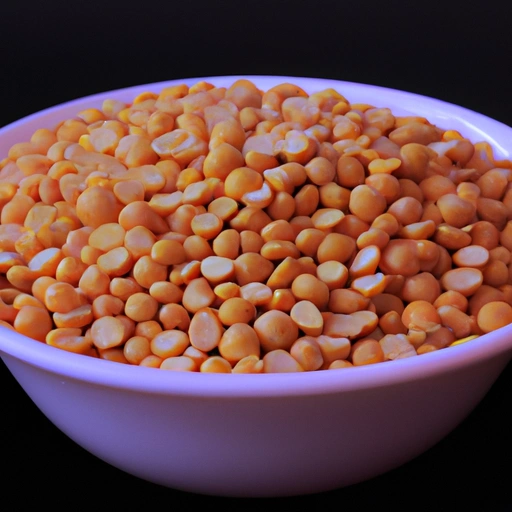Toor Dal
Description

Toor Dal, also known as pigeon peas or arhar dal, is a popular legume used in various cuisines, particularly in Indian subcontinental dishes. It is renowned for its earthy flavor, creamy texture, and high protein content, making it an essential ingredient for vegetarians and vegans seeking protein-rich foods. Toor Dal is typically sold in both split and whole forms and can range in color from yellow to light brown.
Common uses
Toor Dal is commonly used to prepare 'dal', a traditional Indian lentil soup that is savored with rice, roti, or naan. It can also be used in salads, stews, and as a protein-rich addition to vegetarian and vegan dishes.
Nutritional value
Calories
A 100-gram serving of cooked Toor Dal contains approximately 120 calories (502 kilojoules).
Protein
That same serving boasts about 7-8 grams of protein, making it a substantial source of this macronutrient.
Fat
Toor Dal is naturally low in fat, with roughly 2 grams of fat per 100 grams serving.
Carbohydrates
It is rich in carbohydrates, providing about 21 grams per 100 grams serving, most of which are complex carbs.
Vitamins
It provides several essential vitamins, including B vitamins such as folic acid, thiamine, and niacin.
Minerals
Minerals in Toor Dal include calcium, iron, magnesium, potassium, and phosphorus.
Health benefits
Toor Dal is celebrated for its numerous health benefits, including aiding digestion, promoting weight management, and reducing the risk of chronic diseases such as diabetes and heart disease, thanks to its high fiber and low glycemic index.
Potential risks
Overconsumption can lead to elevated uric acid levels due to its moderate purine content, potentially causing gout in susceptible individuals. Additionally, it should be well-cooked to reduce anti-nutrients and improve digestibility.
Common recipes
Common recipes include the classic 'Toor Dal Tadka', 'Sambar', and 'Dal Palak'. It's also used in various soups, stews, and curries across different cuisines.
Cooking methods
Toor Dal can be boiled, pressure-cooked, or simmered until it reaches a soft and creamy consistency. It is often tempered (tadka) with spices and herbs to enhance its flavor.
Pairing with other ingredients
Toor Dal pairs well with spices such as cumin, coriander, turmeric, and mustard seeds. It's also commonly accompanied by vegetables like spinach, tomatoes, and tamarind for added taste and nutrition.
Summary
Toor Dal is a versatile, nutritious, and flavorful ingredient that is a staple in many households worldwide. Its ease of cooking and compatibility with a variety of spices and vegetables make it a popular choice for a healthy and satisfying meal.